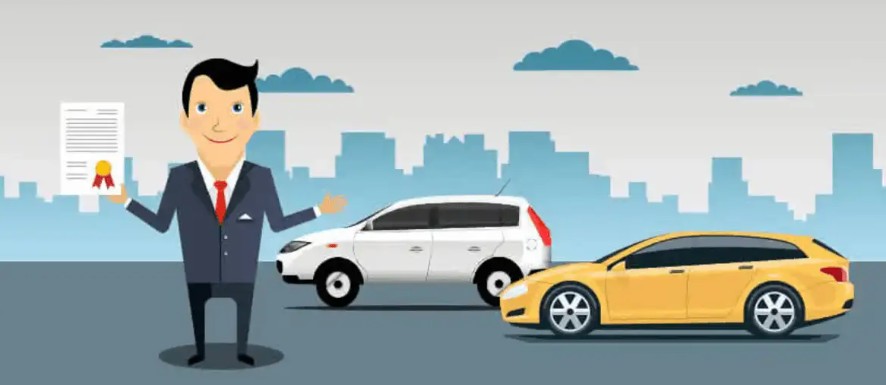The UK government’s ambitious plans for a greener future are bringing major changes to the way drivers are taxed on their vehicles. Starting in 2025, new regulations will overhaul the Vehicle Excise Duty (VED) system — better known as car tax — with a focus on reducing carbon emissions by encouraging the use of cleaner, low-emission vehicles. However, amid these sweeping reforms, there is promising news for older drivers: those aged 70 and above may be exempt from these new car tax changes.
This possible exemption recognises the unique circumstances and challenges faced by senior motorists. It aims to provide financial relief and preserve independence, without compromising the country’s important environmental goals. If you’re a driver over 70 or you have elderly family members who rely on their cars, this detailed guide will help you understand what the upcoming changes might mean for you and how you can prepare.
What Are the New Car Tax Changes Coming in 2025?
The government’s upcoming reforms to car tax are part of a wider strategy to meet the UK’s ambitious target of net-zero carbon emissions by 2050. Here’s what’s changing:
- Higher Charges for High-Emission Vehicles: Vehicles that produce higher levels of CO2 will face increased annual tax fees, reflecting their greater environmental impact.
- Incentives for Electric and Low-Emission Vehicles: Electric cars, plug-in hybrids, and other ultra-low-emission vehicles may benefit from reduced or zero car tax to encourage their adoption.
- More Frequent Updates to Tax Bands: Tax bands based on emissions will be updated regularly to keep up with advances in vehicle technology and evolving environmental standards.
- Encouragement of Greener Behaviour: The goal is to shift public behaviour toward purchasing and using cleaner vehicles, helping to cut overall emissions from road transport.
These changes represent a significant step forward in the government’s plan to transform the UK’s transport sector into a sustainable, environmentally friendly system.
Why Might Drivers Over 70 Be Exempt?

The proposal to exempt drivers over the age of 70 from the new car tax rules comes after recognising that a one-size-fits-all approach could disproportionately impact older people. Several factors explain why this exemption is being considered:
- Fixed or Limited Income: Many seniors rely on fixed incomes such as state pensions, savings, or limited pensions, making any increase in regular expenses, like car tax, potentially difficult to manage.
- Lower Average Mileage: Older drivers typically cover fewer miles per year and tend to use their cars primarily for essential trips such as medical appointments or grocery shopping, which results in a relatively smaller carbon footprint.
- Reluctance or Difficulty Upgrading Vehicles: Seniors may prefer to keep their current cars rather than invest in new models, particularly electric vehicles, which can have higher upfront costs or unfamiliar technology.
- Importance of Mobility and Social Inclusion: For many older adults, personal transport is crucial for maintaining social ties, independence, and access to vital services, especially in rural or poorly connected areas where public transport options are limited.
By exempting this group from additional tax burdens, the government hopes to provide fairness and support to those who may be disadvantaged by the new system, without compromising the overall environmental objectives.
What Impact Will This Have on Senior Drivers and the Wider Population?
For Senior Drivers:
- Financial Protection: Exemption means no sudden or large increases in annual car tax, helping older drivers budget more effectively and keep their vehicles on the road.
- Preservation of Independence: Continued access to affordable transport means seniors can maintain their day-to-day independence and quality of life.
- Less Pressure to Upgrade: Without the tax penalties linked to emissions, seniors won’t feel forced to change their vehicles prematurely or buy newer models they may not want or need.
For the Broader Public:
- Fairness and Flexibility in Policy: This exemption represents a thoughtful, tailored approach to taxation, balancing environmental goals with social equity.
- Incentives for Others to Choose Greener Vehicles: While seniors may be exempt, younger drivers and businesses will still face increased charges, encouraging widespread adoption of cleaner cars.
- Recognition of Diverse Needs: The exemption highlights the government’s understanding that different groups have different needs and challenges when it comes to vehicle ownership.
What Are the Current Car Tax Rules for Drivers Over 70?

At the moment, UK car tax depends largely on the CO2 emissions of the vehicle, especially for cars registered after April 2017. Older vehicles often fall into fixed-rate bands. Currently, there is no age-based exemption for car tax, meaning older drivers pay according to the same rules as everyone else.
The upcoming reforms in 2025 could be the first time the government introduces a specific exemption based on the driver’s age, which would mark a notable shift in policy aimed at supporting older citizens.
How Should Drivers Over 70 Prepare for These Changes?
While the exemption is still being finalised and may be subject to government approval, it’s a good idea for senior drivers to prepare. Here are practical steps to take:
- Stay Informed: Regularly check announcements from the Department for Transport, DVLA, and trusted news sources to keep up to date on the latest developments.
- Review Your Vehicle’s Tax Status: Know your current vehicle’s tax band and renewal dates so you can anticipate any changes.
- Plan for Future Vehicle Purchases: If you’re considering buying a new or replacement car, factor in the new tax system and whether the exemption might apply to you.
- Seek Guidance and Support: Organisations such as Age UK provide advice and support tailored to older drivers, including financial assistance and mobility resources.
- Monitor Your Driving Needs: Evaluate your current driving habits and consider ways to reduce emissions, such as car sharing or using public transport where possible.
What Does This Mean for Small Businesses?

While the focus here is on individual drivers, small businesses should also be aware of how these changes might affect their operations, especially if they have employees or customers over 70:
- Fleet Management: Businesses with older employees who drive company vehicles may benefit from exemptions or need to factor these changes into their transport policies.
- Customer Engagement: Understanding the needs of older customers who may rely heavily on personal transport can help businesses tailor services and communication.
- Transport and Delivery Services: Small businesses offering taxi, courier, or delivery services with older drivers should keep abreast of tax changes to provide accurate advice and budgeting.
Final Thoughts
The potential exemption for drivers aged over 70 from the new UK car tax changes coming into effect in 2025 reflects a balanced and compassionate approach to environmental policy. It demonstrates the government’s commitment to reducing emissions while ensuring vulnerable groups are not unfairly burdened.
For senior drivers, this development offers reassurance that their mobility and financial security will be protected during a period of significant change in the automotive landscape.






